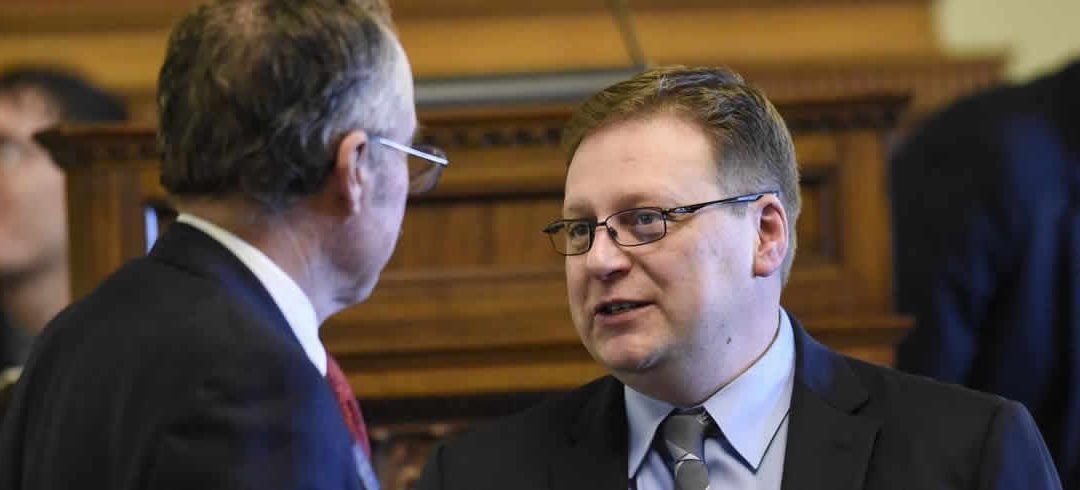- SB 330, the Montana Sports Betting Act, could legalize wagering in MT by 2020.
- Residents would be able to wager on sports at brick-and-mortar venues throughout the state.
- Statewide online betting is not a part of the current proposal.
HELENA, Mont. – The bill to legalize sports wagering in Montana has moved out of committee and is headed to the Senate floor. The Senate Business, Labor, and Economic Affairs Committee voted to advance the sports wagering proposal 8-2, sending to the upper chamber for consideration.
Dubbed the Montana Sports Betting Act, SB 330 is primarily sponsored by Republican Sen. Mark Blasdel (Kalispell) but has strong bipartisan support. There is no substantive opposition to the law, and analysts expect legal Montana sports betting to roll out by the end of the 2020 calendar year.
Indeed, if SB 330 is passed and signed into law, by its own design, sports wagering could not start in the state until June 1, 2020. This is the timeline built into the bill to give the Montana Gambling Control Division adequate time to gear up for overseeing the new industry.
And that industry could be a fairly large one.
While Montana is a sparsely-populated and spread-out state, it still maintains a thriving underground sports wagering marketplace. By many credible estimates, the state’s avid bettors turn an annual handle of over a billion dollars betting on athletic contests. Currently, the state gets none of the proceeds of this activity. Blasdel hopes his bill will change this.
“Unfortunately, sports betting is in the black market now. SB 330 would set it up so you would have the Department of Justice overseeing it to try to track who’s operating these and collect some tax revenue off of it, as well.”
Given to the Senate committee on March 19, the above statement would seem to suggest a desire to seek out black-market operators and collect taxes from them, that’s not the case. Blasdel merely wishes to regulate and monetize as much Montana sports wagering action as possible.
How Much Tax Revenue Will Montana Sports Betting Generate?
Interestingly, the main gambit with the Montana Sports Betting Act is not to achieve this budgetary shot in the arm strictly (or even primarily) via taxation.
The Act would, in fact, come with a tax rate of just 8.5 percent, which would rank among the lowest in the nation.
Fiscal analysis of SB 330 suggests that the law would generate $2 million in taxes during its first full year of operation, while it is expected to raise as much as $3.5 million by 2022.
The bigger financial impact of the Montana Sports Betting Act will be in how it affects the venues where wagering will be available. These venues include Montana’s many taverns and bars.
Because the law would require geo-fencing of sports wagering to the physical properties of licensed operators, this would theoretically cause these businesses to generate more revenue of their own. Additionally, the new draw would bring bettors into smaller towns, providing a boost to their local economies as a result.
John Iverson, who represents the Montana Tavern Association, explains the reasoning behind this setup.
“If you look at the total tax on this bill to the taverns, it’s not significant. If we pass this bill, it will give a boost in the arm to a lot of small towns across the state of Montana.”
Blasdel chimes in, doubling down on the geo-fencing aspect of the bill, which has been the apparent only sticking point in the Senate so far.
“Part of it is certainly the economic driver. … [We] want to make sure at least the bettors have to go in and put the money in their account in the taverns. That way, you don’t have somebody sitting at home; they have to make that trip and can’t just keep betting.”
This would seem to indicate some openness on Blasdel’s part to expand sports wagering to statewide Internet portals if players physically put money into their accounts and have to collect payouts in-person at brick-and-mortar venues. However, SB 330 makes no provisions for wider online betting at this time.
Montana Sports Betting Act Highlights
- $1000 license fee for sportsbook operators
- $1000 annual renewal fee for sportsbook operators
- $100 annual fee for each sports betting kiosk installed at a licensed book
- 8.5% tax rate on gross sportsbook revenue
- Wagering allowed on professional sports, collegiate sports, Olympic sports, and e-sports only
- Minimum age to wager on sports set at 18 years old
- Mobile/Internet wagering restricted to sportsbook operator premises
Advertising Disclosure
In order to provide you with the best independent sports betting news and content LegalSportsBetting.com may receive a commission from partners when you make a purchase through a link on our site.
News tags: Montana | Montana sports betting | Montana Sports Betting Act | MT SB 330

Andy has been writing professionally for nearly two decades, with the last three years being dedicated to his primary passions: sports wagering news and gambling industry analyses. A walk-on punter, Andy has a particular interest in professional football, baseball, and horse racing betting. Come early May, you can always catch Andy – clad in all white, mint julep in hand – on Millionaires Row at Churchill Downs. In his dreams.


 Bitcoin Sports Betting Sites
Bitcoin Sports Betting Sites Best Online Sports Betting
Best Online Sports Betting Famous Sports Bettors
Famous Sports Bettors States With Legal Sports Betting
States With Legal Sports Betting Sports Betting Events
Sports Betting Events




